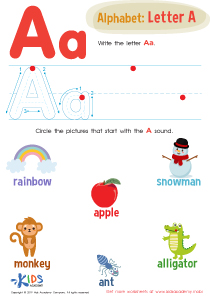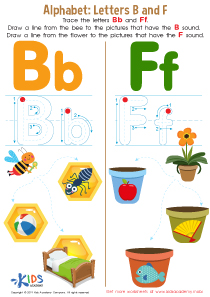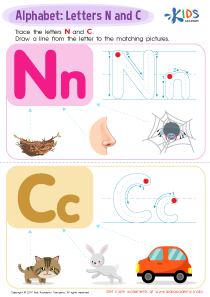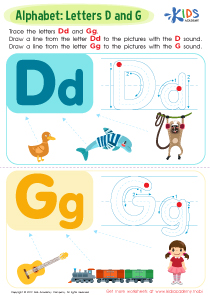Handwriting practice Letter G Worksheets for 6-Year-Olds
3 filtered results
-
From - To
Enhance your child's handwriting skills with our expertly designed "Handwriting Practice Letter G Worksheets" for 6-year-olds. Perfectly tailored for young learners, these engaging worksheets from Kids Academy provide a fun and effective way for children to practice writing the letter G. Each sheet is filled with exercises that strengthen fine motor skills, improve pencil control, and foster letter recognition. With colorful designs and simple directions, our worksheets make learning to write both enjoyable and educational. Help your child build a strong foundation in handwriting with these valuable resources. Explore and download now to start your child's handwriting journey!
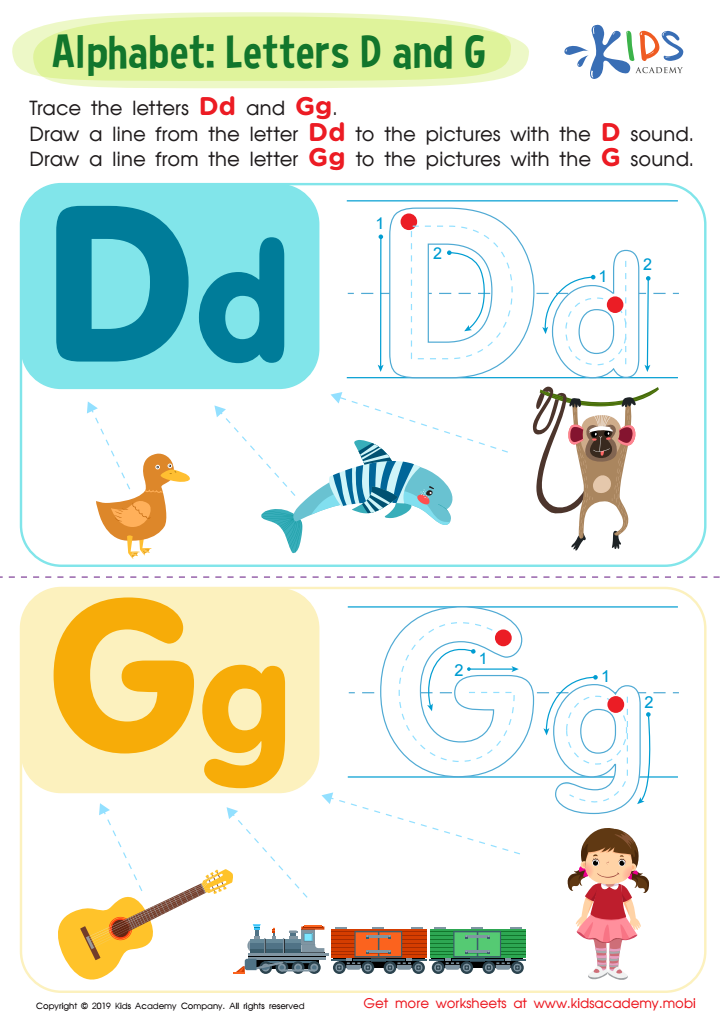

Letter D and G Tracing Worksheet
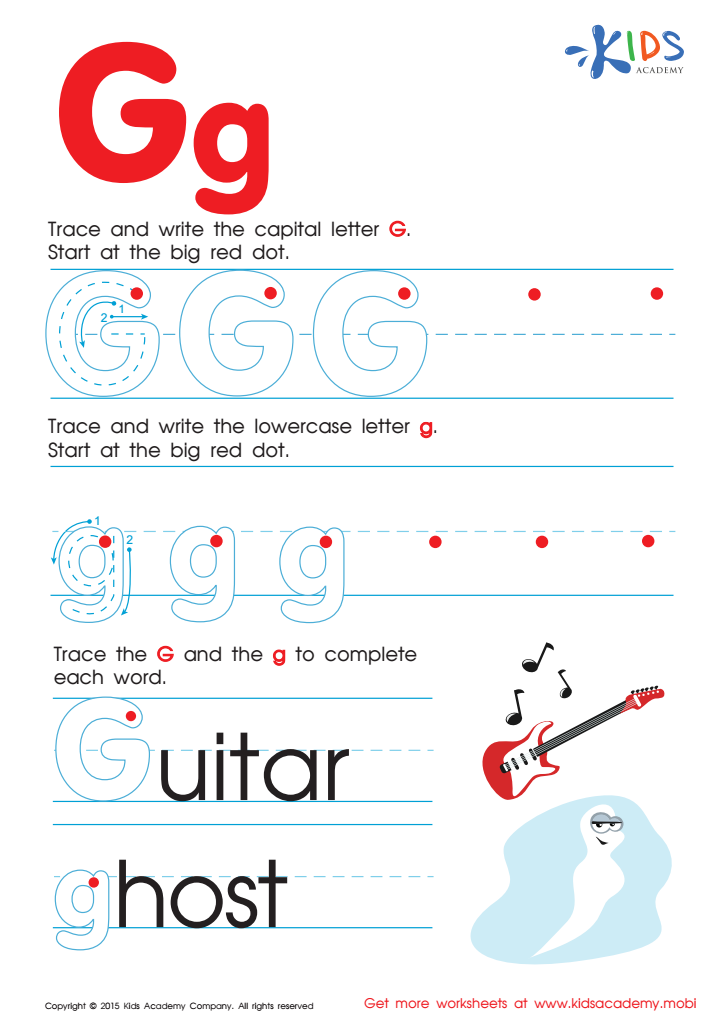

Letter G Tracing Page
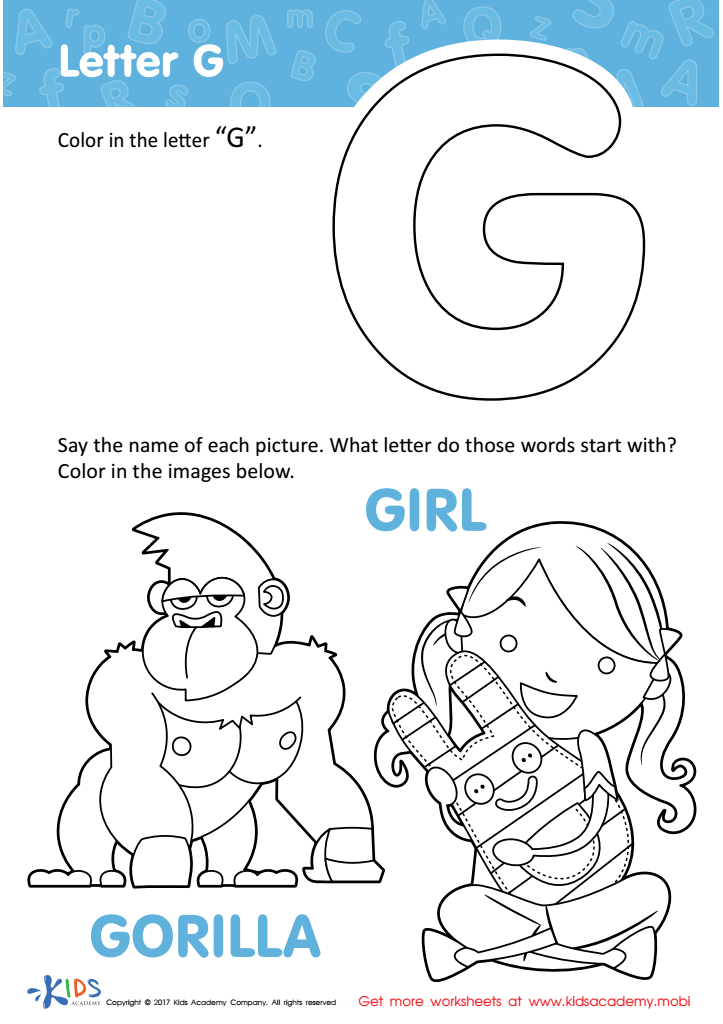

Letter G Coloring Sheet
Handwriting practice, particularly for individual letters like "G," is crucial for 6-year-olds as it lays a foundational skill set that influences their academic and cognitive development. Firstly, learning to write the letter "G" engages fine motor skills, enhancing the child's hand-eye coordination and grip strength, which are essential for daily tasks beyond writing, such as tying shoes or using utensils.
Moreover, precise handwriting practice fosters better letter recognition. Children distinguish between similar characters, crucial for literacy as they learn to read and spell correctly. This helps in avoiding common confusions, like mistaking "G" for "Q" or "6." Consistent practice embeds these letters into long-term memory, aiding in faster and more accurate reading and writing.
Handwriting initiates cognitive learning; children become attentive to detail, follow patterns, and apply rules, assisting them in fields requiring discipline and accuracy. Additionally, the rhythmic motion of handwriting engages parts of the brain linked to healing and processing emotions, promoting concentration and calming hyperactive tendencies.
For parents, teacher-guided handwriting sessions represent bonding opportunities that support a nurturing learning environment. Showing interest in your child's handwriting assures them that their efforts are valued, building self-esteem and encouraging lifelong learning enthusiasm. Ultimately, mastering "G" propels children towards academic proficiency, instilling confidence, and a sense of accomplishment.

 Assign to My Students
Assign to My Students








